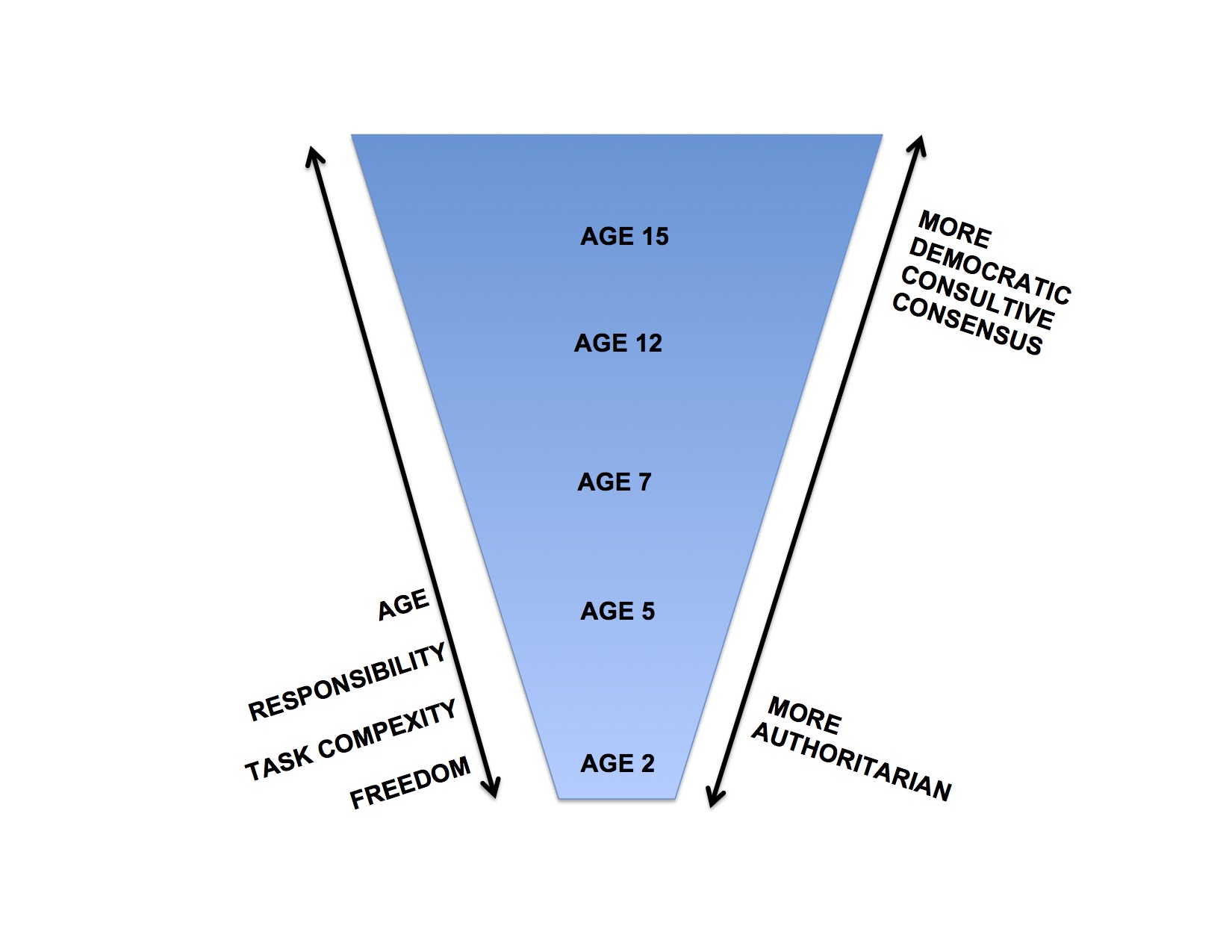Making Decisions that Won’t Make Your Kids Crazy
How does your family make decisions? I’m talking about things like: what kids should wear to school, eat for breakfast, haircut to get, sport to play, what the family will eat for dinner, do on the weekend, and do with their free time? Families make a lot of decisions.
One study on leadership determined there are 4 main decision making styles. When managing people or leading a team, it’s important to determine the appropriate decision-making style that will bring about the most success for the team and development of the individuals on the team. But, these 4 leadership styles don’t have to stay in the business world, they can easily apply to our families as well. When it comes to daily decisions facing your family, consider which style will best fit your decision-making scenario.
Autocratic: The leader retains all authority in decision-making and expect group members to comply without question. This is the style parents most often use. Parents will tell their children, “Because I said so,” “Just because,” or “Don’t talk back, just do it!” Because parenting is not a democracy and we are responsible for the safety and well being of our children, this is an appropriate style for many scenarios. This may be the simplest, fastest, and most used parenting decision-making style, but it is also least likely to develop a child’s ability to reason, leadership, value system, or internal sense of pride, responsibility, or self-control.
Consultive: The leader confers with team members, but retains authority for the final decision. Parents can give children 3 options for what to do over the weekend and ask children to help weigh the options. Or if a parent is deciding how often a child should be allowed to play video games, he/she can first ask for their input. Before, telling your children the options, it’s important to let them know that you will make the final decision and make sure everyone will follow the decision without complaining. In parenting, just like leadership, people want to know their point of view is heard and truly considered before buying into any decision the man makes.
Consensus: The leader will play the role of family mediator. The family mediator can encourage family members as they attempt to express their view points. This is also a great opportunity to practice compromise.
Democratic: The leader confers the final decision to a group vote. The downside of this in a family is the small number of people participating. If any family decision goes to a vote in our family, my children always think it’s hilarious to vote against whatever their father wants. I don’t think it’s so hilarious. But, again, if I play the role of the mediator and try to get the family to convince me to vote for their point of view, I feel it encourages them to think through their ideas and feelings.
Parent within the funnel
I love child expert’s Ezzo and Buckram’s explanation of parenting “within the funnel”. They explain that a child needs age-appropriate freedom and responsibility. I would never let my 8 year old drive my car. Giving him that freedom would not only land me in jail, but also him in the emergency room for sure. As our children grow, it’s important that we begin exploring other decision-making styles other than Autocratic. If our job as parents is to prepare our children to fully enter the world, it will begin with teaching them to think and reason for themselves, instead of always depending on us in all decisions.
Begin with the end in mind
I have a few long term goals as a parent. I hope to limit how much money my kids spend in counseling because of me. Besides that, I really want to prepare my children to make decisions on their own, and to help them develop their own values. As my children get older I realize more and more that you can’t discipline values into your children. It has to be something they develop on their own. If I always lead and make decisions for my family, it may prove how big and strong I am, but it will never encourage them to trust themselves and believe that they have greatness inside of themselves.

